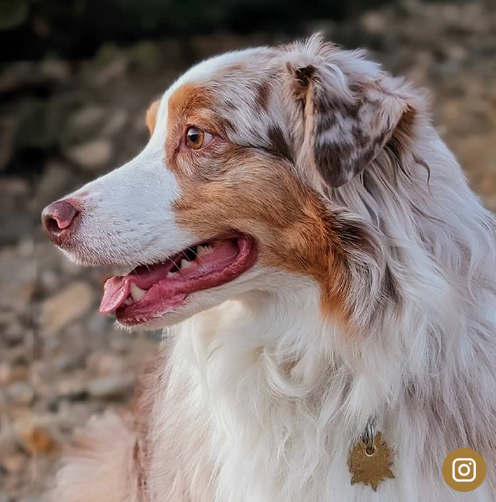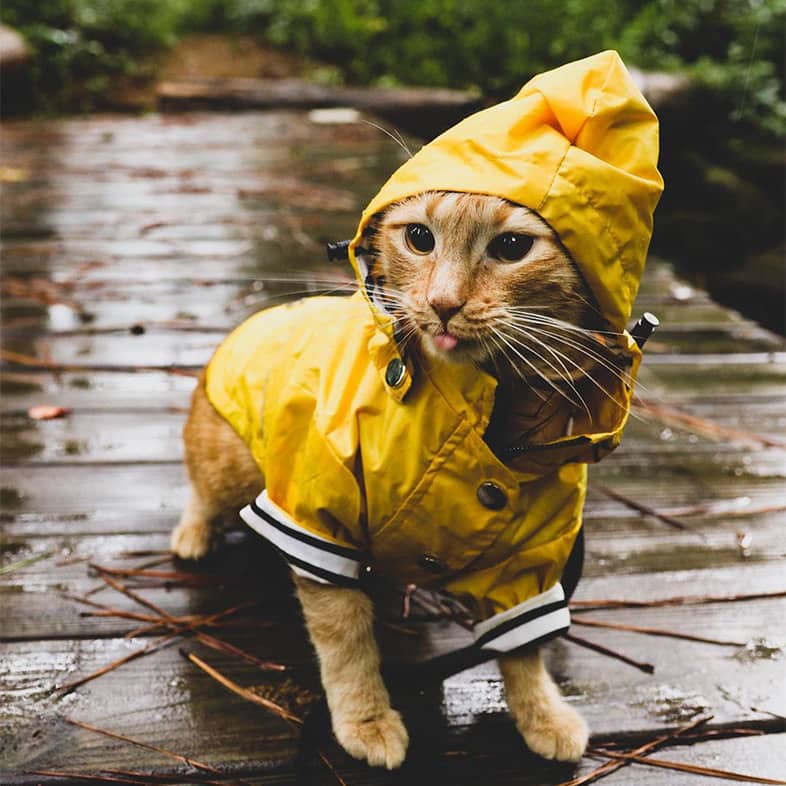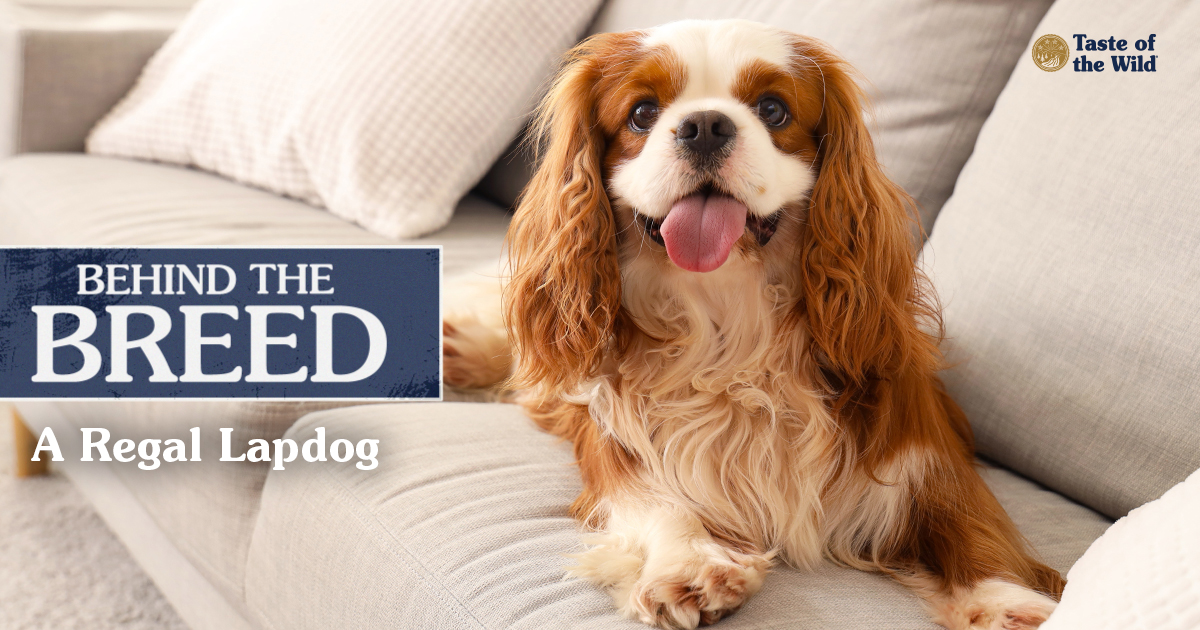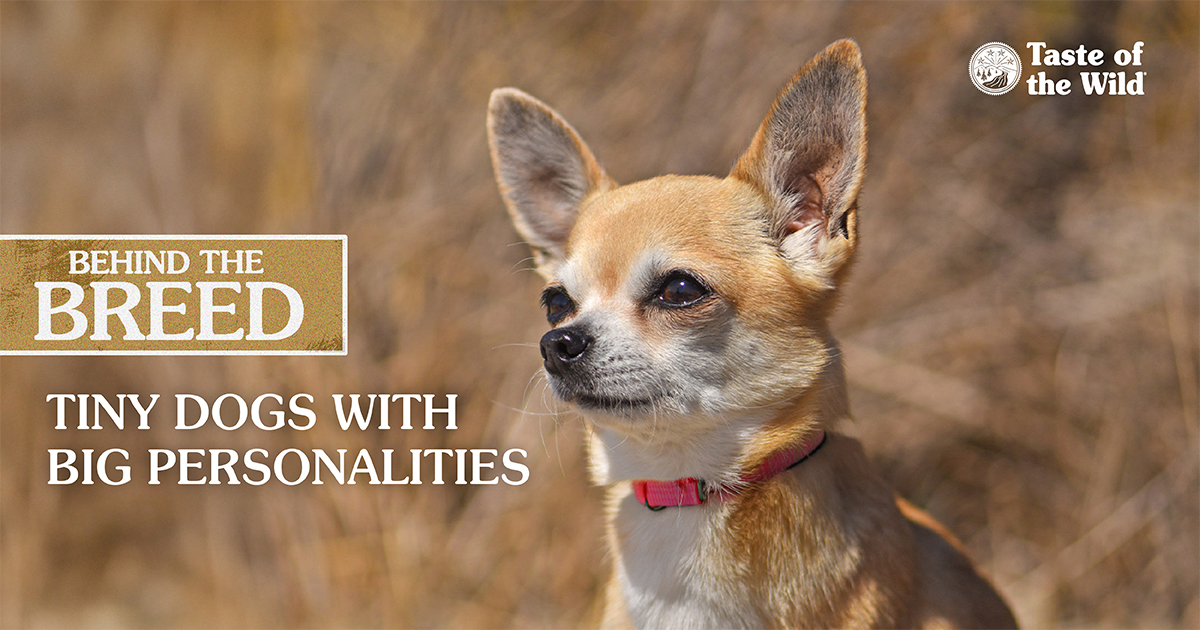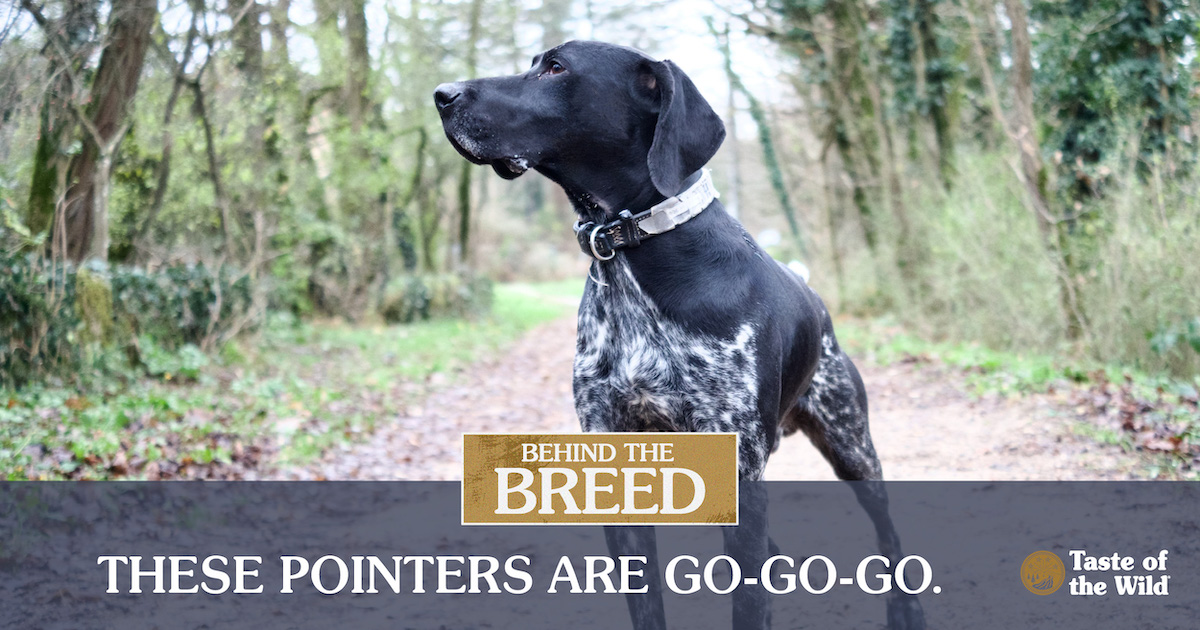Behind the Breed: Newfoundlands
Thursday, July 8, 2021 | Behind the Breed
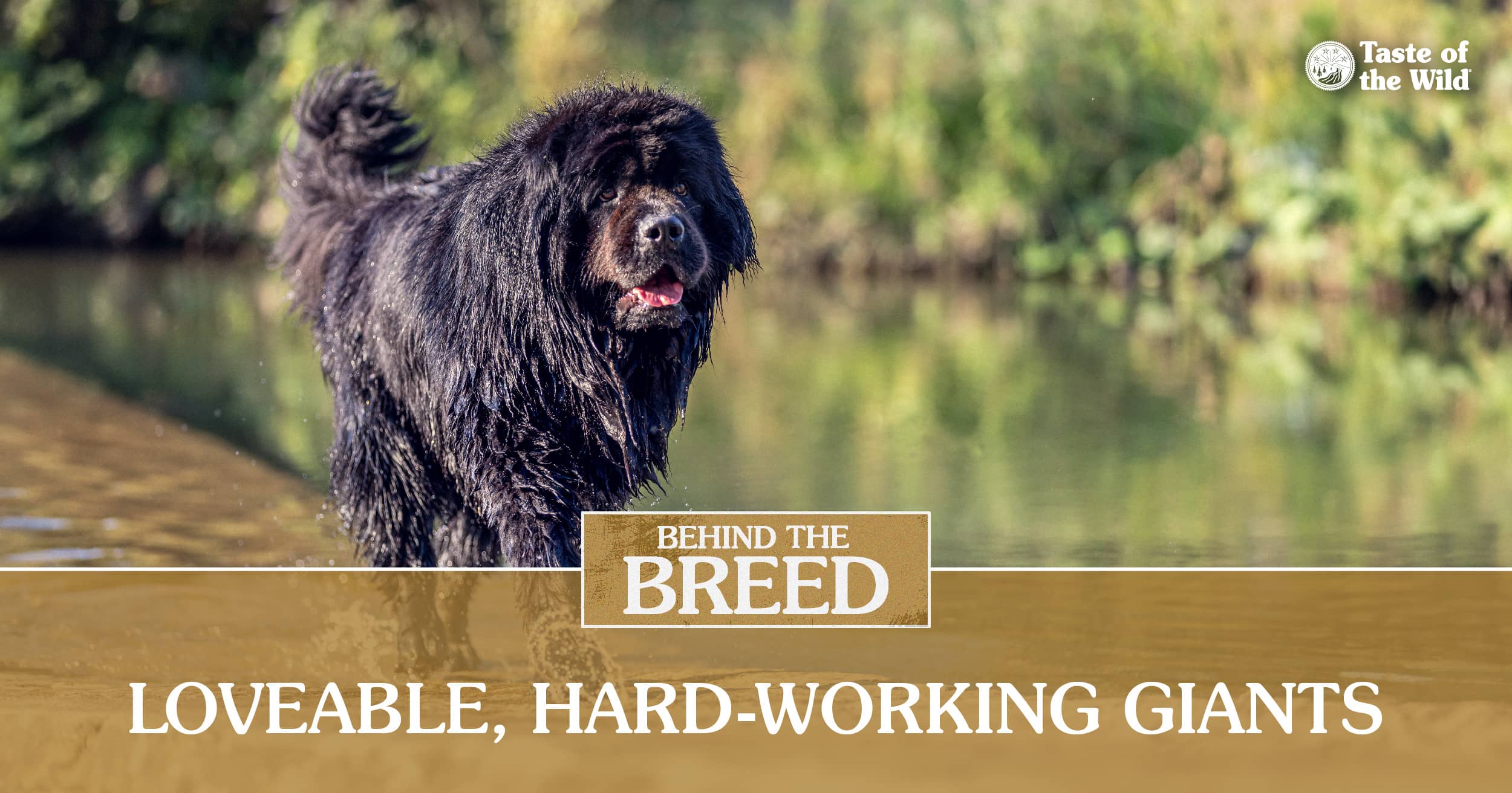
Have you ever wondered where a dog breed originated from? In our “Behind the Breed” series we’ll dive into the history, personality and physical appearance of a particular breed. We’ll also cover some of the FAQs about the breed and maybe some fun facts, too!
The Newfoundland dog size may be intimidating, but “Newfies” or “nanny dogs” are patient and gentle giants, especially with their tiny human family members. Their sweet disposition and their natural lifesaving abilities make the Newfoundland a true multipurpose dog!
Newfoundland Dogs Love Working in the Water
Named after the island off the east coast of Canada, the Newfoundland’s water-resistant double coat, rudder-like tail and webbed feet made them ideal shipmates. Powerful Newfies thought nothing of leaping into the icy Atlantic waters to haul fishing nets or rescue a sailor who fell overboard. They were also hard workers on shore, whether it meant pulling the day’s catch to town in a cart or hauling sleds through the snow.
With a reputation for being fierce in the water but docile companions on land, Newfies were brought to England and France, where they quickly gained popularity. The first official showing of the breed occurred in 1860, when six Newfoundlands were entered into the national dog show in Birmingham, England. Thanks to their prowess at water rescue, Newfoundland dogs soon became standard requirements for lifeguard stations along the British coast.
Newfoundland Dog History
How, exactly, the breed started is a mystery. Archeological digs in northern Newfoundland have uncovered evidence of a Viking settlement, including skeletons of large dogs, hinting that they may have arrived on board a Viking ship. Others theorize the breed developed from the Great Pyrenees that accompanied Spanish fishermen to the island.
The Newfoundland Dog Personality
Newfies are mostly gentle companions, lounging around the house and playing with kids, which makes sense, given that the Newfoundland personality is calm, devoted and protective. The sweet temperament of Newfies makes them excellent therapy dogs, and their gentleness with children is why they’re often referred to as “nanny dogs.” As a natural-born working dog, the Newfoundland excels at water trials, obedience, tracking, drafting, pulling carts and sledding.
Newfoundland Dog FAQs
What Are the Newfoundland Dog Colors?
According to the Newfoundland Club of America, coat color variations include solid black, brown and gray, and a mix of black and white called a Landseer Newfoundland.
Do Newfoundlands Drool?
Newfies are abundant droolers. So Newfoundland pet parents just starting their Newfie journey will need to invest in a drool rag and a bandana to help catch some of the endless drool before it spreads all over their home. The American Kennel Club even has them in their “Top 10 Droolers” list.
Do Newfoundlands Shed?
With their thick, double coat, Newfies can be moderate shedders, especially during the shedding season. Weekly grooming of their outer coat, and more frequent grooming sessions with a slicker brush (when needed), will help keep on top of a Newfoundland’s shedding.
How Big Do Newfoundlands Get?
With a height of up to 28 inches and a weight of up to 150 pounds, the Newfoundland dog size definitely meets the definition of a giant dog breed!
How Long Do Newfoundlands Live?
The Newfoundland lifespan is around 10 years.
Training Newfoundland Puppies
Like all puppies, a Newfoundland puppy should undergo early socialization so they are comfortable and confident as an adult. They are fairly easy to train because they love to please their people. Their size makes training even more important in some ways — you probably don’t want a 150-pound adult Newfoundland jumping up on you!
Large Size Dog Breeds Need Adequate Nutrition as Puppies
The Association of American Feed Control Officials (AAFCO) considers dogs to be large sized if they will weigh 70 pounds or more as mature lean adults. This is important to know when choosing food for Newfoundland puppies, as they need food that meets the growth requirements of large-sized dogs.
You can find the AAFCO statement on all commercial dog food labels. Here is example of an AAFCO statement for a formula that meets the requirements for growth of large size dogs, so it is a complete and balanced food for a growing Newfoundland pup:
“Taste of the Wild Ancient Mountain Canine Recipe with Roasted Lamb is formulated to meet the nutritional levels established by the AAFCO Dog Food Nutrient Profiles for All Life Stages, including growth of large size dogs (70 lbs. or more as an adult).”
Newfoundland Fun Facts
- A Newfoundland named Seaman who accompanied Lewis and Clark on their travels may be the reason Lewis named a tributary of the Blackroot River in Montana “Seaman’s Creek.”
- Lara, President James Buchanan’s Newfoundland, was famous for sprawling on the White House floor for hours, with one eye open and the other closed.
- A Newfoundland named Rigel is credited with saving a number of Titanic passengers. Rigel barked to alert the passenger ship Carpathia, which stopped and rescued survivors — including Rigel.
The information in this blog has been developed with our veterinarian and is designed to help educate pet parents. If you have questions or concerns about your pet’s health or nutrition, please talk with your veterinarian.
